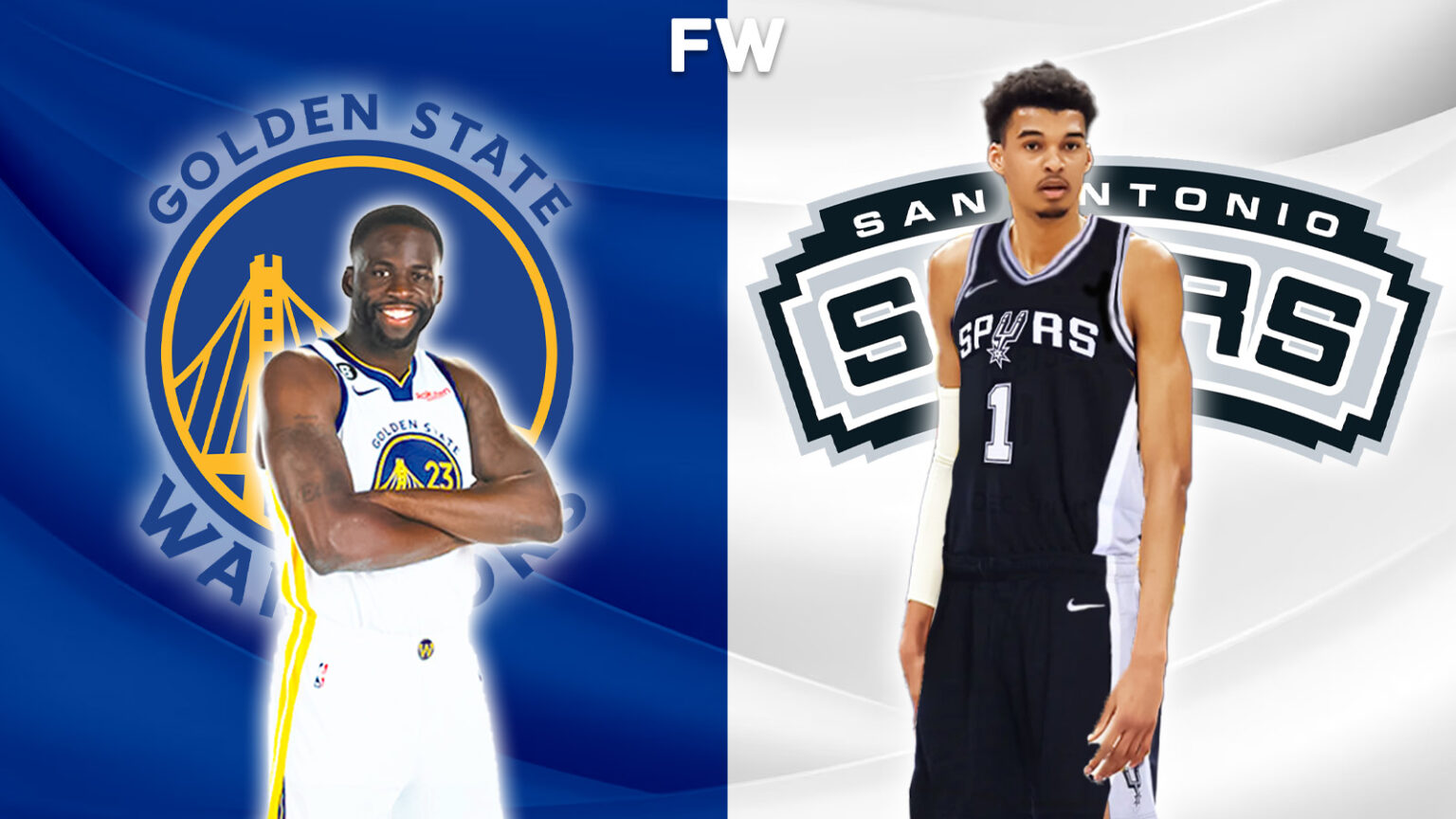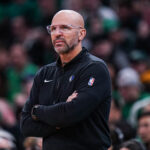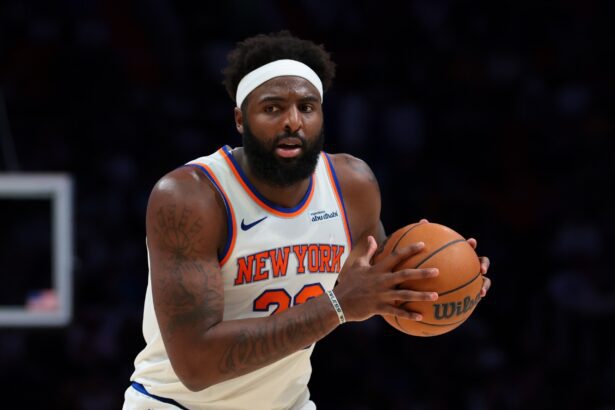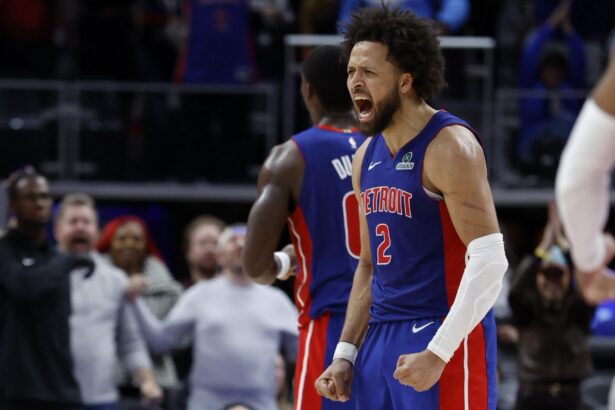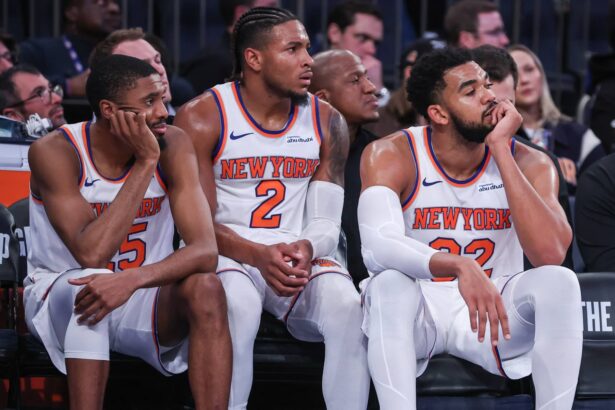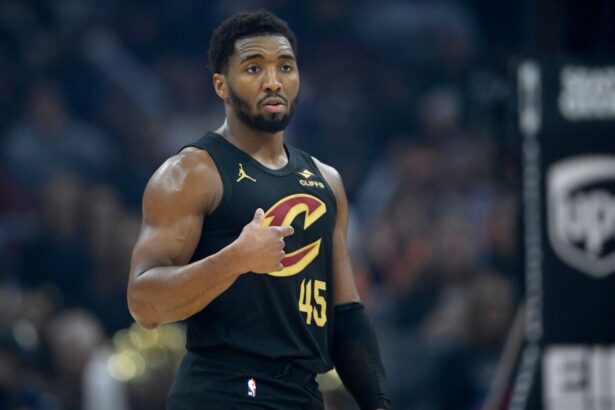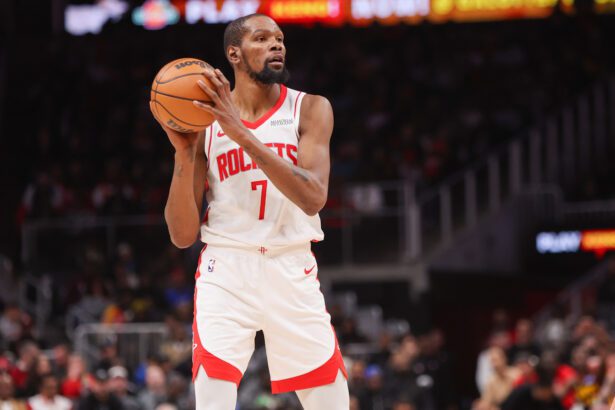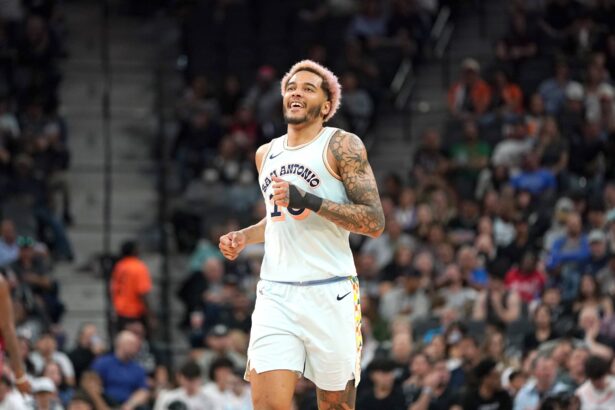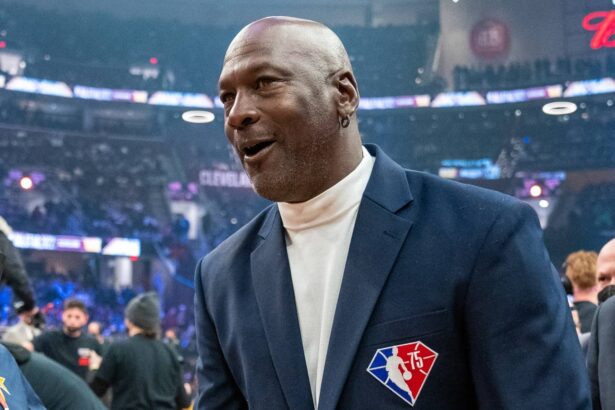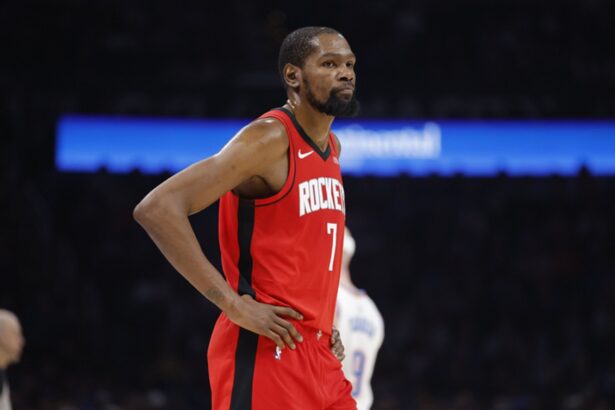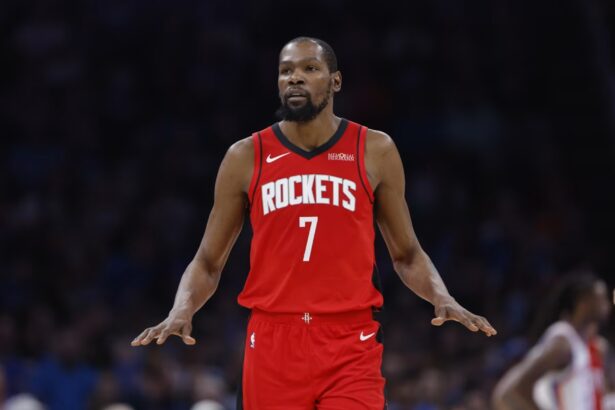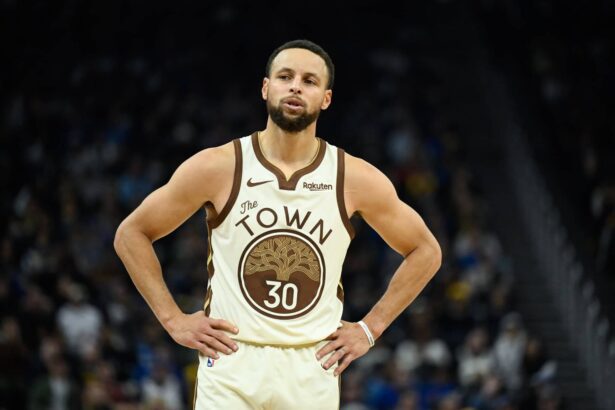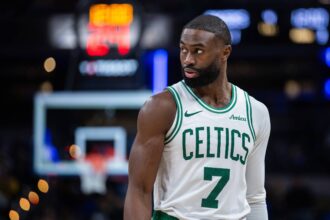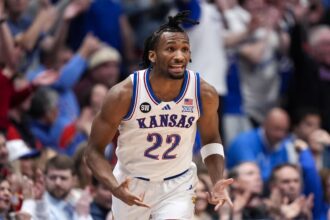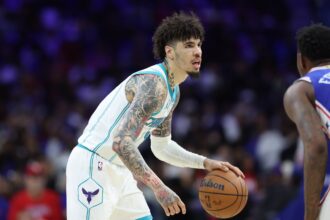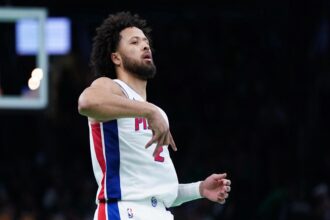Draymond Green’s recent comments on Victor Wembanyama’s candidacy for the Defensive Player of the Year (DPOY) award have sparked debate and raised questions about the criteria for such accolades. While acknowledging Wembanyama’s remarkable defensive prowess, Green expressed skepticism about his suitability for the prestigious honor.
“Wemby is 12th in the league and steals the first and blocks and those are great numbers and as he continues on in his career and that team gets better. I don’t think those numbers are going anywhere.”
“I don’t think Wemby’s going to block less shots, I don’t think Wemby’s going to get less steals with his length and so he’ll have these numbers and he’ll have opportunity to win Defensive player of the Year.”
“I personally don’t think that is this year, even if Rudy Gobert wasn’t having the season that he’s having and their team having the season that they’re having, I still don’t think you can give that award to somebody who’s on 24th best defense in the league.”
Draymond Green says Victor Wembanyama doesn’t deserve DPOY, and implies that if he wins DPOY, then Jayson Tatum deserves MVP
(🎥 @TheVolumeSports )
— NBACentral (@TheDunkCentral) March 6, 2024
Wembanyama, the standout rookie for the San Antonio Spurs, has been garnering attention for his exceptional defensive performances throughout the season. Leading the league in blocks with an average of 3.4 per game and ranking 12th in steals with 1.3 per game, Wembanyama has undeniably made a significant impact on the defensive end of the court. His imposing presence in the paint and ability to disrupt opponents’ offensive plays have been key factors in the Spurs’ defensive efforts.
However, Draymond Green contends that individual defensive statistics alone should not determine the recipient of the DPOY award. He points to the Spurs’ overall defensive ranking, which currently stands at 24th in the league, as evidence that Wembanyama’s defensive contributions may not be sufficient to warrant such recognition. According to Green, team success and defensive performance as a collective unit should be paramount considerations in assessing DPOY candidates.
While acknowledging Wembanyama’s impressive defensive statistics, Green emphasizes the importance of evaluating a player’s impact within the context of team success. Despite Wembanyama’s standout performances, the Spurs’ struggles this season, evidenced by their 13-49 record, raise questions about the overall effectiveness of their defense.
Green’s comments highlight the complexities involved in assessing individual accolades in a team sport like basketball. While individual performances certainly play a significant role, the broader context of team dynamics and success must also be taken into account.
As the debate surrounding Wembanyama’s DPOY candidacy continues, Green’s perspective serves as a reminder of the multifaceted nature of evaluating defensive excellence in the NBA.
Gilbert Arenas Makes A Case For Victor Wembanyama Winning DPOY Award
Gilbert Arenas is making a compelling case for Victor Wembanyama to be considered for the 2024 Defensive Player of the Year (DPOY) award, despite Rudy Gobert being the favored candidate. Wembanyama’s defensive prowess has exceeded expectations, with him leading the league in blocks at an impressive average of 3.4 per game.
This outstanding performance has sparked discussions about his potential to become the first player in NBA history to win both Rookie of the Year and Defensive Player of the Year accolades.
Arenas emphasizes that Wembanyama’s impact as an individual defender should be the primary consideration for the DPOY award, regardless of his team’s record. He highlights Wembanyama’s ability to influence the game beyond scoring, such as his shot-blocking prowess, which has been nothing short of elite during his rookie campaign.
While Gobert boasts an impressive defensive resume, having previously won the DPOY award three times, Wembanyama’s emergence as a defensive force cannot be overlooked. Gobert’s candidacy is bolstered by his role as the defensive anchor for a team leading the league in defensive rating. In contrast, Wembanyama’s San Antonio Spurs have struggled defensively and sit at the bottom of the Western Conference standings.
However, Wembanyama’s individual defensive statistics speak volumes about his impact on the court. Averaging 20.7 points, 10.2 rebounds, 3.4 assists, 3.4 blocks, and 1.3 steals per game, Wembanyama has consistently demonstrated his defensive prowess. His remarkable performance in February, where he recorded 47 blocks, rivals the defensive output of seven NBA teams.
Despite the odds favoring Gobert, Wembanyama’s stellar defensive numbers and impact on the game make a strong case for his candidacy for the DPOY award. With his exceptional defensive contributions and potential to disrupt opponents’ strategies, Wembanyama remains a contender for the prestigious honor.
Does Team Defensive Numbers Matter For The DPOY Award?
In the 2022-2023 NBA season, Jaren Jackson Jr. clinched the DPOY award while playing for the Memphis Grizzlies. His win was bolstered by the Grizzlies’ impressive defensive performance, as they ranked third in the league in defensive rating. This highlights the crucial role of team defense in contributing to Jackson Jr.’s candidacy and eventual victory.
In the 2021-2022 NBA campaign, Marcus Smart emerged as the DPOY while representing the Boston Celtics. Smart’s win was closely tied to the Celtics’ league-leading defensive rating, emphasizing how a team’s defensive prowess can significantly influence an individual player’s candidacy and success in the DPOY race.
Rudy Gobert’s third DPOY win in the 2020-2021 season further reinforces the correlation between team defensive performance and individual recognition. Once again, Gobert’s Utah Jazz ranked among the top teams in defensive rating, demonstrating the vital role of team defense in shaping DPOY outcomes.
Giannis Antetokounmpo’s MVP and DPOY double in the 2019-2020 NBA season was underpinned by the Milwaukee Bucks‘ league-best defensive rating. This dual achievement underscores how team defensive success can elevate an individual player’s profile and contribute to their accolades and achievements on the defensive end.
Rudy Gobert’s back-to-back DPOY wins in the 2018-2019 and 2017-2018 seasons further emphasize the consistent trend of players from teams with strong defensive performances receiving individual defensive accolades. The Utah Jazz’s leading defensive ratings during these seasons underscore the integral role of team defense in shaping DPOY outcomes and recognizing top defensive talents in the league.
However, the case of Victor Wembanyama, who is in contention for the 2024 DPOY award despite his team, the San Antonio Spurs, having a lower defensive rating, presents an interesting twist. While Wembanyama’s individual defensive prowess is undeniable, the Spurs’ overall defensive performance does not rank among the league’s elite.
This raises questions about the weight given to team defensive success versus individual defensive excellence in determining the DPOY award winner. While historically team defensive numbers have been a significant factor, Wembanyama’s candidacy challenges the conventional notion, suggesting that individual defensive impact can also weigh heavily in the award decision.
Ultimately, the debate over the importance of team defensive numbers in the DPOY award is ongoing, with various factors, including individual performance and team success, contributing to the final decision.
Thank you for being a valued reader of Fadeaway World. If you liked this article, please consider following us on Google News. We really appreciate your support.

